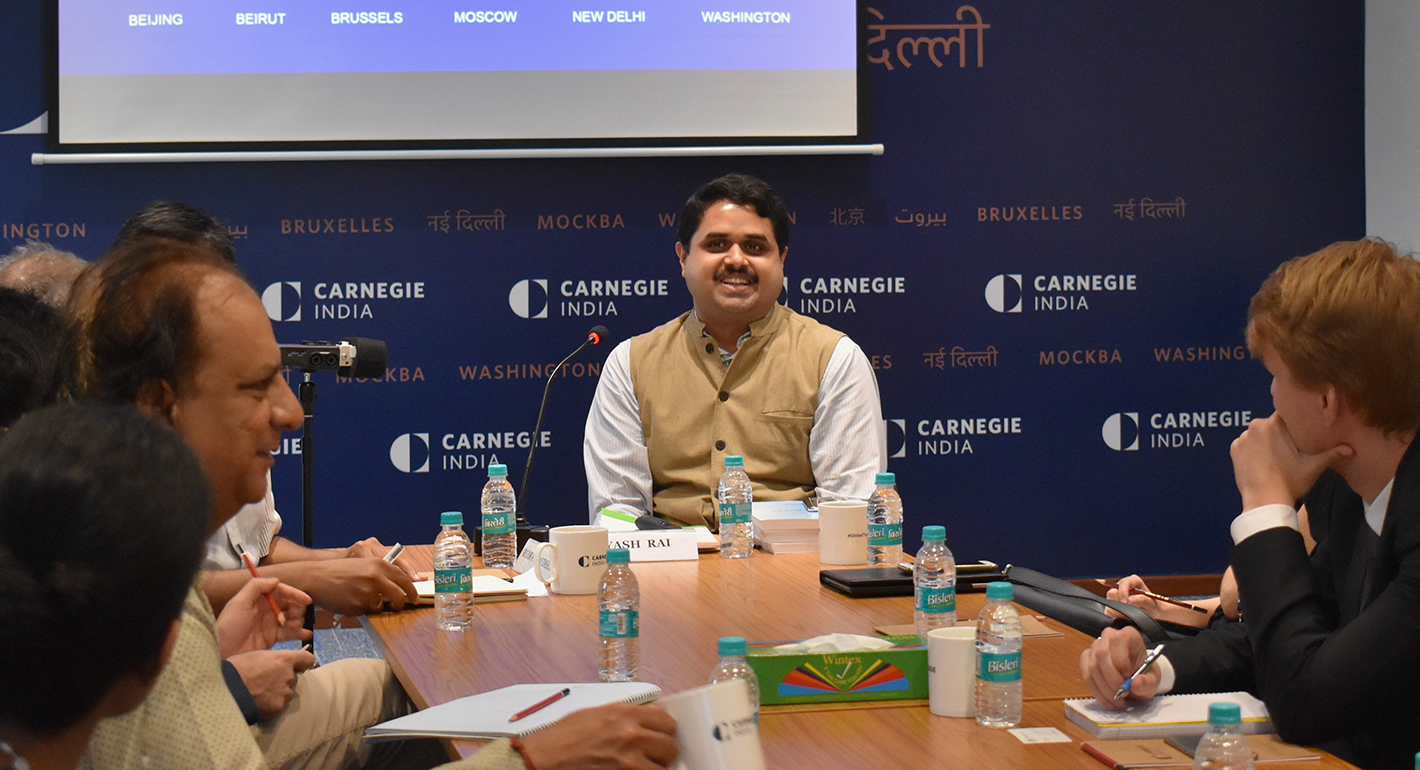Registration
You will receive an email confirming your registration.
China’s expanding global influence has sparked a variety of international responses. While some countries have adopted a confrontational approach, others are looking to bandwagon with the Asian giant. Is a dichotomous view of China as an ally or adversary prudent? What is the most effective and realistic response to China’s rise?
Carnegie India hosted Raffaello Pantucci, director of international security studies at the Royal United Services Institute (RUSI), for a roundtable discussion to understand and assess China’s relationship with Asia, as well as, western policy responses to China. The discussion was moderated by Rudra Chaudhuri, director of Carnegie India.
DISCUSSION HIGHLIGHTS
- China’s Role in Afghanistan: Participants emphasized current Chinese investment projects in Afghanistan. They noted that, while China is the biggest economic actor in Afghanistan, Chinese projects in the country have not yet provided a return on investments. Participants highlighted that China is the only country that has a positive relationship with all of Afghanistan’s neighbors, especially Pakistan and Iran. They underlined, with the United States withdrawing its presence from Afghanistan, there is great potential for China to play a leading role in the region. Some participants noted that Afghanistan is now looking toward China for political support as China could play the role of a guarantor for the peace talks in Afghanistan.
- UK–China Relationship: Participants stated that the UK shares an interesting relationship with China. They discussed that depending on which ministry is addressed, the UK appears to have different views on China. Participants stated, in the post-Brexit era, the UK will most likely be more focused on China for economic opportunities. They highlighted that several ministries that previously did not consider China to be a major player, now regard it as a prospective partner in new domains, such as media, culture, and sports.
- Huawei: Participants deliberated on the current debates surrounding 5G and Huawei that are taking place across the globe. A few participants noted that the UK, in contrast to its allies, such as the United States, has allowed Huawei to function in the country. Participants stated that, in the UK, the debate around Huawei is with regard to infrastructure and standards only. They explained that the UK believes that it has nothing to fear with Huawei as the UK government has the appropriate checks and balances in place to minimize any risk that could arise. Participants also discussed the importance of decoupling Chinese technology and Huawei. They noted that with the growing U.S.–China tensions, there is a lot of misunderstanding around the issue.
- Future of the BRI: Participants examined the origins of China’s Belt and Road Initiative (BRI). The BRI, they stated, should be viewed as a foreign policy concept envisioned by Chinese President Xi Jinping. Participants also explained that the narrative surrounding the BRI has been based on China’s foreign policy agenda. Some participants noted that, since the BRI is primarily focused on infrastructure projects, it is an easy way for China to invest in other countries. Other participants stated that China is trying to move toward an investment model, which is more sustainable and local. Participants agreed that the BRI is a long-term project that will lead to a more interconnected world.
- India-China Relationship: Participants noted that the post-Wuhan phase has witnessed greater stability in the India-China relationship. They stated that bilateral relations between the two countries have been positive, especially in the trade sector. This trade cooperation has helped both nations look beyond their immediate borders and focus on other areas, they explained. However, participants warned against other disruptive actors—in Afghanistan and Pakistan—who could attempt to upturn the current positive bilateral relationship between the two neighbors.
This event summary was prepared by Rhea Menon, a senior communications coordinator and research assistant at Carnegie India.
